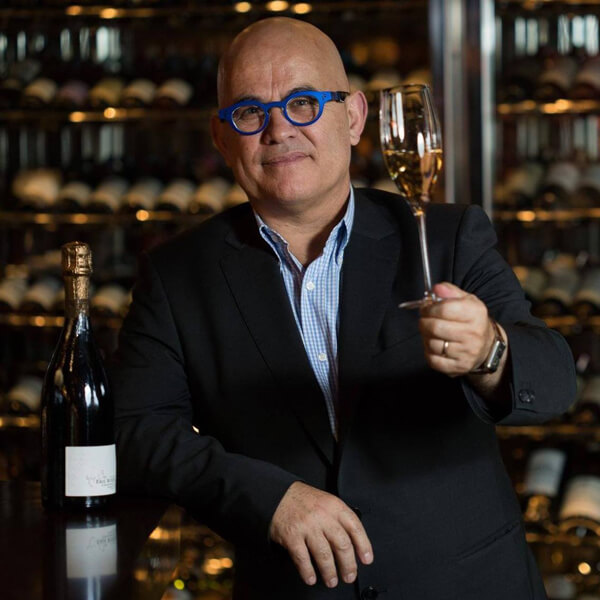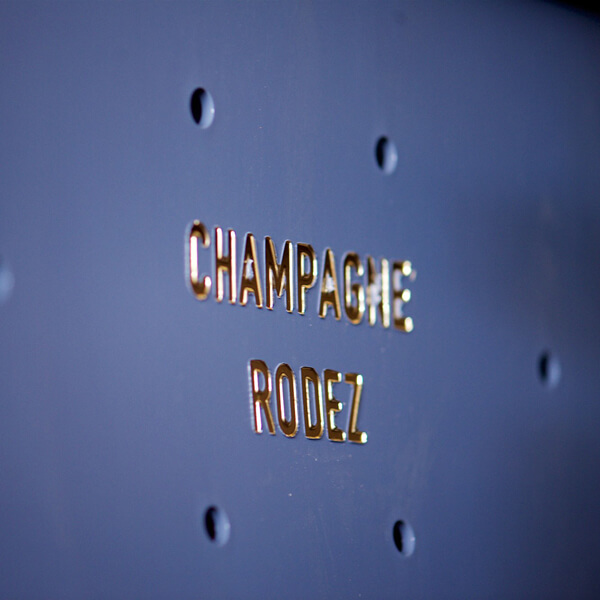
CUVÉE DES CRAYÈRES Extra Brut Grand Cru Ambonnay Champagne Rodez NV
Champagne France
12.5%
White
Pinot Noir, Chardonnay.
Bio-dynamic, Vegan, Certified Organic, Vegetarian
40% chardonnay, 60% pinot noir; 20% 2019, 22% 2018, 29% 2017, 29% older reserves; 86% vinified in barrels, 15% in vats; 30% malolactic fermentation; 2.5g/L dosage; 8000 bottles.
2019 was the last vintage i...(read more)

MACÉRATION Rosé Extra Brut Grand Cru Ambonnay Champagne Rodez NV
Champagne France
12.5%
Rosé
Pinot Noir, Chardonnay.
Bio-dynamic, Certified Organic
25% chardonnay, 30% pinot noir, 45% maceration pinot noir; 37% 2018, 19% 2017, 22% 2016, 22% older reserves; 90% vinified in barrels, 10% in tanks; 10% malolactic fermentation; 2g/L dosage.
We did not want...(read more)

BLANC DE NOIRS Extra Brut Grand Cru Ambonnay Champagne Rodez NV
Champagne France
12.5%
White
Pinot Noir.
Certified Organic
100% Ambonnay pinot noir from 11 vineyards; 22% 2016, 36% 2015, 19% 2014, 23% older reserves; 90% vinified in barrels, 10% in tanks; 10% malolactic fermentation; 2g/L dosage; disgorged September 2022; 10,000 bottles....(read more)
Tyson Stelzer - The Champagne Guide
CUVÉE DES GRANDS VINTAGES Extra Brut Grand Cru Ambonnay Champagne Rodez NV
Champagne France
12.5%
White
Pinot Noir.
Certified Organic
Certified organic (Ecocert), biodynamic (Demeter). Tirage 2018. Disgorged January 2024.
It smells like a summer thunderstorm and tastes, incongruously, like an African summer. If you ever ate drippingly juicy ripe...(read more)

CUVÉE DES CRAYÈRES Extra Brut Grand Cru Ambonnay Champagne Rodez NV
Champagne France
12.5%
White
Pinot Noir, Chardonnay.
Bio-dynamic, Vegan, Certified Organic, Vegetarian
Magnums
40% chardonnay, 60% pinot noir; 20% 2019, 22% 2018, 29% 2017, 29% older reserves; 86% vinified in barrels, 15% in vats; 30% malolactic fermentation; 2.5g/L dosage; 8000 bottles.
2019 was the last vintage i...(read more)

CUVÉE DES GRANDS VINTAGES Extra Brut Grand Cru Ambonnay Champagne Rodez NV
Champagne France
12.5%
White
Pinot Noir.
Certified Organic
Magnums
Certified organic (Ecocert), biodynamic (Demeter). Tirage 2018. Disgorged January 2024.
It smells like a summer thunderstorm and tastes, incongruously, like an African summer. If you ever ate drippingly juicy ripe...(read more)




